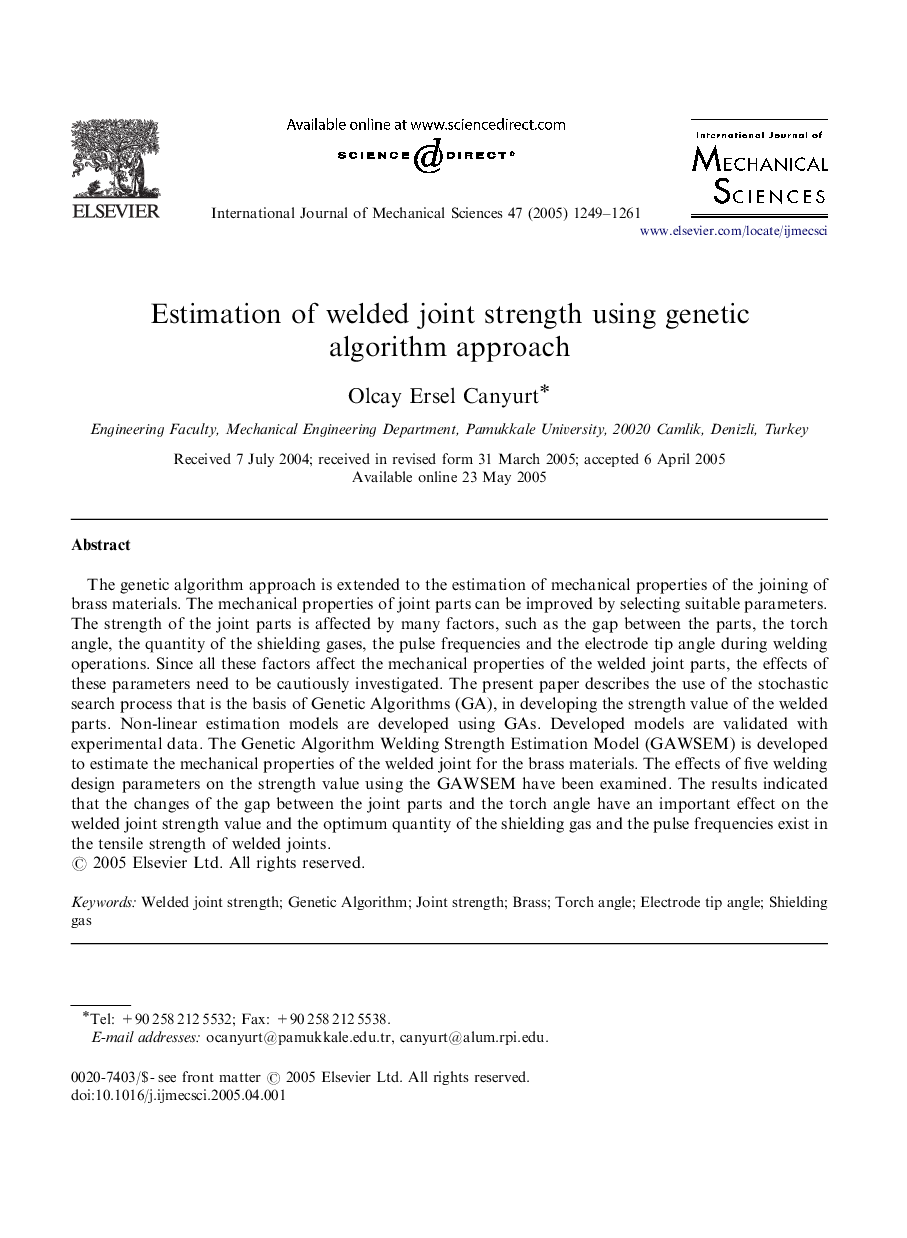| Article ID | Journal | Published Year | Pages | File Type |
|---|---|---|---|---|
| 9706080 | International Journal of Mechanical Sciences | 2005 | 13 Pages |
Abstract
The genetic algorithm approach is extended to the estimation of mechanical properties of the joining of brass materials. The mechanical properties of joint parts can be improved by selecting suitable parameters. The strength of the joint parts is affected by many factors, such as the gap between the parts, the torch angle, the quantity of the shielding gases, the pulse frequencies and the electrode tip angle during welding operations. Since all these factors affect the mechanical properties of the welded joint parts, the effects of these parameters need to be cautiously investigated. The present paper describes the use of the stochastic search process that is the basis of Genetic Algorithms (GA), in developing the strength value of the welded parts. Non-linear estimation models are developed using GAs. Developed models are validated with experimental data. The Genetic Algorithm Welding Strength Estimation Model (GAWSEM) is developed to estimate the mechanical properties of the welded joint for the brass materials. The effects of five welding design parameters on the strength value using the GAWSEM have been examined. The results indicated that the changes of the gap between the joint parts and the torch angle have an important effect on the welded joint strength value and the optimum quantity of the shielding gas and the pulse frequencies exist in the tensile strength of welded joints.
Related Topics
Physical Sciences and Engineering
Engineering
Mechanical Engineering
Authors
Olcay Ersel Canyurt,
